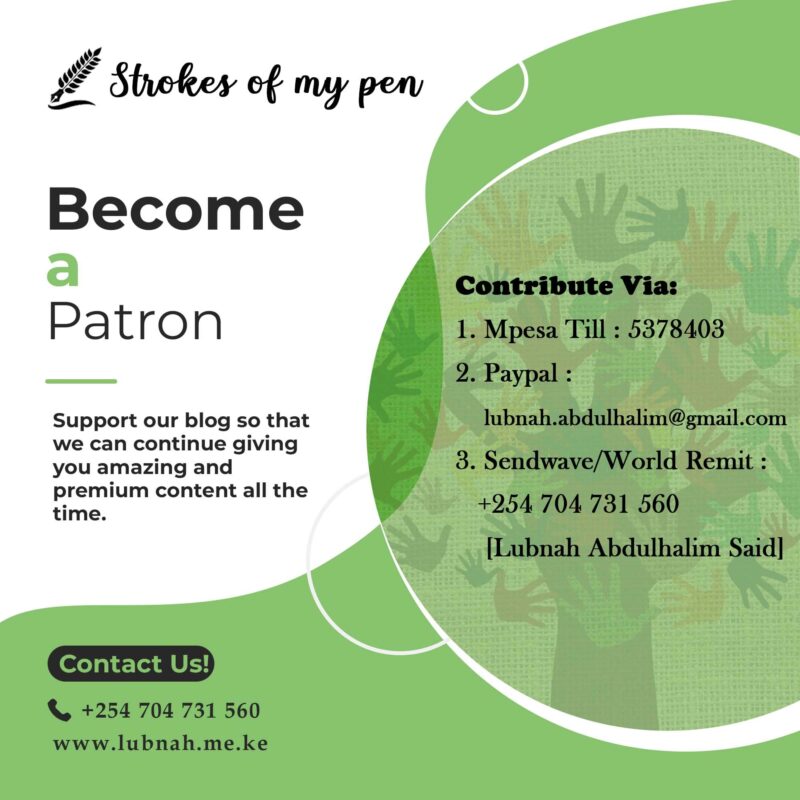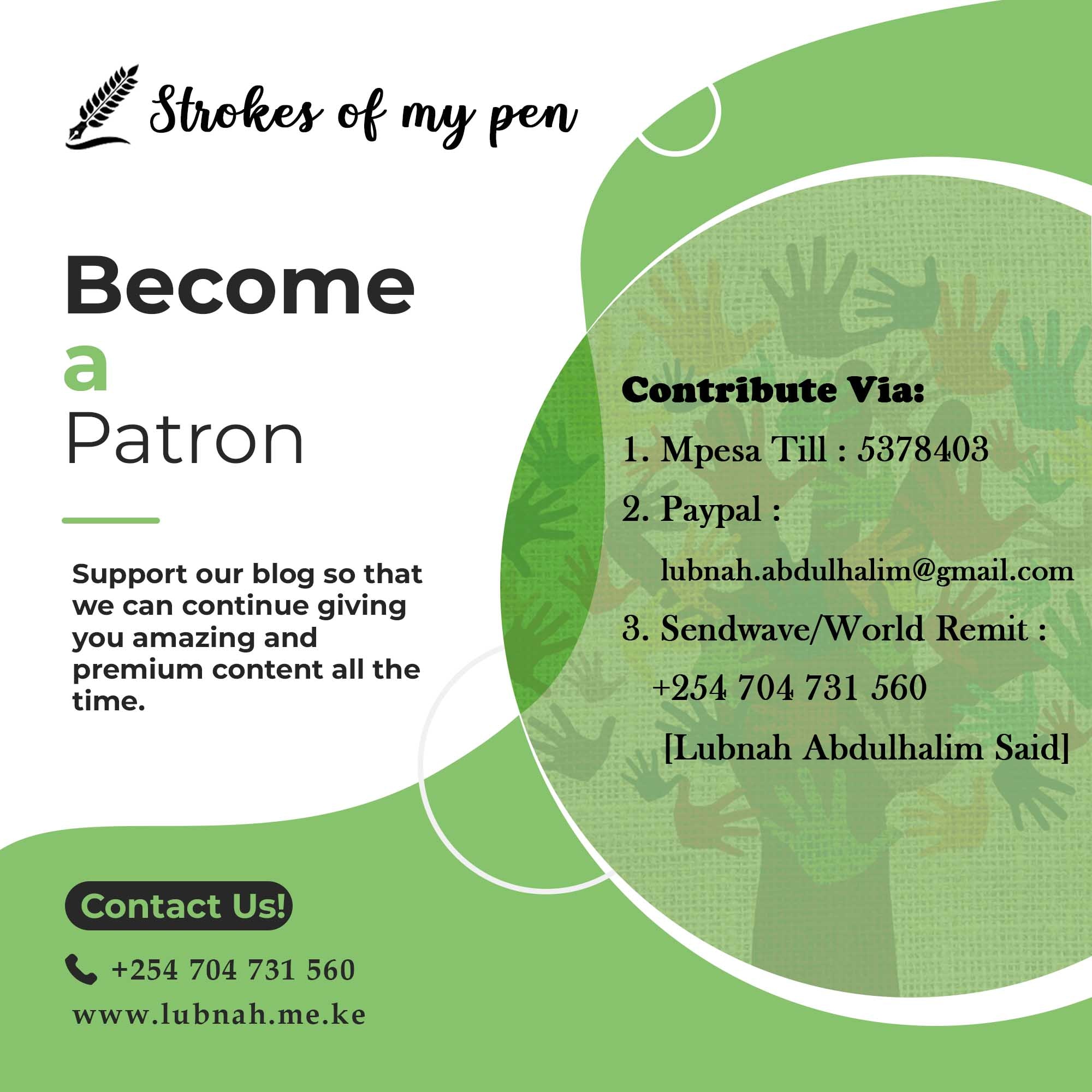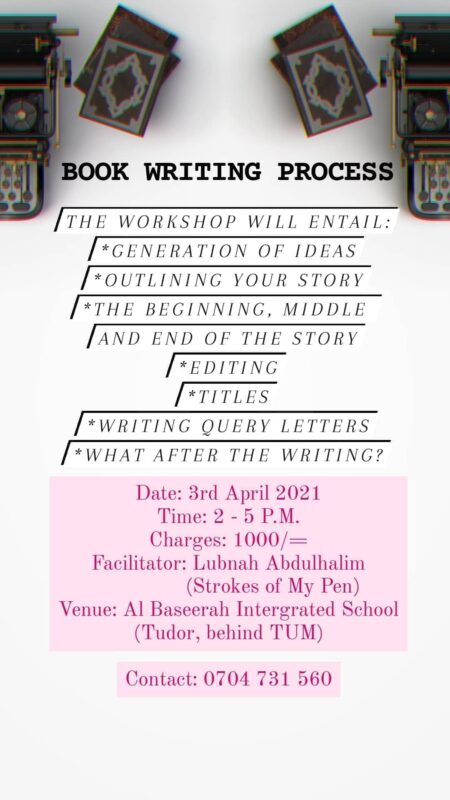To read part 3 of this series, click here
Pre-Marital Questions & Discussions
Kindly take note that these discussions are expected to take place in halal contexts and have to be respectable. The aim of the questions is NOT to interrogate or judge an individual but rather to understand his/her life better and also allow the other person to consider whether that aligns with what they want for themselves i.e. establish compatibility.
The questions are not expected to be asked in one sitting for that will definitely make it seem like an interrogation, but rather should be spread out during different conversations. You have to be strategic and sensitive in how you phrase your questions to avoid misunderstandings or hurting the other person.
The questions below are to give you an idea of the important questions to ask but shouldn’t necessarily be asked in the same manner. It is always better if one integrates the questions into the conversations so that the parties involved can feel at ease answering.
1. Religion:
What sects and school of thoughts do you associate with?
Who do you read Islamic knowledge from?
Who is your favourite sheikh?
Up to what level did you study religion?
What does being religious mean to you?
What Islamic conferences do you attend?
Which masjid do you go to? Do you pray all five times and in the masjid (for men)?
What are your thoughts on women being in da’awah/teaching?
What are your thoughts on mawlid, moon-sighting (like on the occasions of eid and Ramadhan)?
If there are some critical differences in ideologies/sects/practices, one can ask, ‘if we got married, how would we navigate around these differences? Which ideologies will we teach our children?’
2. Children:
Are you interested in having kids?
How soon into the marriage?
How many kids would you want to have?
What do you think is a father’s/mother’s role in their child’s life?
For the woman: Are you willing to pause your career to raise your children? Ideally, how long a pause would you want to take?
3. Finances:
What is your income bracket? (The father of the girl can also ask this)
Do you deal with interest? Or take part in any gambling/betting activities?
Are you in debt?
What kind of lifestyle do you have based on your finances?
What’s the nature of your work/business?
Do you have any partners in your business?
How comfortable are you discussing finances?
For the woman: Are you working?
Are you willing to contribute to home finances?
Would we share everything in a marriage or have separate finances?
Do you want to be involved in financial discussions?
4. Employment:
What kind of job do you have?
Do you like your job? (Frustrations from work can frustrate a marriage too)
What’s the time of your work? Do you have night shifts?
How many off days do you have?
How often do you have work travels?
For men: Are you okay if I have career ambitions?
Do you want a career woman or a housewife?
5. Education:
What level of education do you have?
Do you have a problem if I continue with my education even after marriage & kids?
What do you think of higher education for your daughter?
How far are you with your Islamic knowledge?
Would you say you’re interested in gaining knowledge even as you grow older?
6. Past:
Is there anything in your past that I should know about? Do you think it will affect our future?
TAKE NOTE: You should not expose your sins for Islam does not encourage that. So you shouldn’t say anything unless it can affect your future. For example, you have children from another woman, or a child out of wedlock or addiction which you may relapse in, or record with the police, or trauma such as domestic violence or sexual abuse or STDs which can affect one’s marriage. Be careful about what you say here for it can be used against you in the future. You don’t have to talk about your past relationships or mistakes, especially after you’ve already repented. Stick to only saying what is relevant to your present and future with this person and your marriage to them.
Also important to note, when someone comes to ask you for information about an individual for the purpose of marriage, you are expected to be honest and transparent, for this is a huge commitment. HOWEVER, you shouldn’t mention irrelevant past mistakes and sins that they have already repented from or stopped doing. Don’t mention who someone was dating or what kind of relationship they had or they used to skip prayers etc. Stick to what the person is NOW and mention only the parts of the past that can affect the present and the future as well.
7. Future:
What are your future plans and goals?
Where do you see yourself in five/ten years?
Are you planning on staying in the same country/city?
How do you see your future with your children?
Are you planning on marrying more than one wife? And for the woman: if it ever came to that, would you agree to be in a polygamous marriage?
8. Hobbies & Lifestyle:
What do you do in your free time? Do you like watching TV? Playing games? Reading books? How many hours would you say you spend on your hobbies?
Do you travel? If you do, how often?
Do you cook or eat out often?
Are you vegetarian or on a diet?
Do you eat healthy meals only or do you eat the usual?
Do you do any exercises? Go to the gym? Do you take part in any activities to preserve your health?
Do you use any drugs? Do you have any addiction?
In our society today it is also important to establish what the individual thinks about gender roles; what do you expect of your husband/wife in terms of roles in a marriage and in your home?
Also important; how active are you on social media? Are you okay with your spouse posting details about your life online example, your family photos, travels, home etc. How much information is too much information (to share online)? What boundaries must your spouse have regarding how they interact with other people, especially the opposite gender on social media?
9. Family:
Are you a family man?
Tell me about your family?
Where are you from? What’s your background?
How do you see your relationship with your in-laws?
Are you planning to live with your parents/family?
Are you okay if I bring my mum/dad to us in case that is needed?
What’s the plan for them when they’re old?
What are your expectations of me towards your family?
10. Red Flags to look out for in potential spouses:
When you’re trying to know someone, especially for the purpose of marriage, it is tricky to know all their mannerisms because most people strive to be at their best during this stage. However, when having these important conversations, be on the lookout for red flags. Alternatively, when doing a background check on an individual ask about these issues. Here are some of the red flags:
*Unfounded Jealousy: Earlier on, we miss out on hints of extreme jealousy because we find it cute when an individual is jealous about us. However, this could be a huge red flag that we’re overlooking. Sometimes an individual could stalk your every single activity on social media and ask for an explanation for everything you liked or posted or for people who commented on your posts. They could ask you about every opposite gender who commented on your post and whether you know them. Sometimes when interactions lack modesty, it is fair that they ask for clarification on the nature of the relationship with the individuals, but sometimes individuals have unfounded jealousy over very innocent interactions. You’d see that these individuals treat you like their property and become so possessive and sometimes would even want you to cut off your friendships with everyone in your life. Some even ask their wives after marriage, not to even look out the window. Most of the time, people with extreme jealousy also have controlling behaviours.
*Controlling behaviour: Someone wouldn’t tell you they have controlling behaviour but sometimes you can get hints of it during conversations. For example, a man could get angry that you went somewhere without telling him. Mind you, you’re not even married yet, perhaps only engaged. But he already feels entitled. And as much as it can seem like he’s just being caring, this could be a huge red flag. Some men don’t allow their wives to even drop the children at school without his permission first or if they run out of milk or flour, the woman isn’t allowed to go to the store next door unless she calls him first. Don’t get me wrong, a wife is expected to ask for permission from her husband but there should be discussions on what are the limits. Shaykh Waleed mentioned that for example a woman is going to visit her family, or going to a wedding, or wants to travel then she must ask for his permission. But when it comes to daily, normal, mundane activities, a woman should be given the freedom to live as a normal person. Even if you can’t catch these red flags from conversations, you can observe these based on how they treat their sisters and female relatives. Some females are not even allowed to have friends at all, and they’re not allowed to even step out of the house even if there’s an emergency. Marriage is meant to be a partnership based on trust, love, mercy and respect, and such controlling behaviours make it seem like a suffocating cage for the woman.
*Violent temper: Be on the look out when you see that the individual has a very bad temper like they’re always ready to strike. That is a huge red flag and this individual could potentially take part in domestic violence.
*Constant criticism: Some individuals never have a positive remark to say and are the first to criticize you about everything. Why do you eat like this? Why did you dress like that? You look fat. You’re lazy etc etc. Those individuals will just lower your self-esteem with their constant degrading remarks. Please note that positive criticism is different from the above-the intention is good and the person genuinely wants to see you grow and prosper.
*Substance abuse/Addiction: You ask about this directly and ask about it from his friends, colleagues and family as well.
*Scary divorce story: If the man/woman was previously married and the story that is going around is of a devastating incident in the previous marriage, then that could be a red flag. For example, a woman is said to have been divorced because she was doing sihr, or a man is said to have raped a minor…stories like those. The important thing here is to verify such information so that you don’t end up unjustly forming false opinions about an individual. Sometimes a bitter ex could start such despicable rumours just to get back at them for being divorced. So just make sure to verify such stories.
*Arrogance-never admits mistakes-never apologizes.
*Bad friends
*Missing swalah
*No modesty, no shame, indecent
*No respect for family
*Stinginess, miserliness
*Rudeness
*No proper hygiene, dirty
*No proper etiquette/manners; in talking, how they deal with people, in eating etc.
***
Recommendations:
*Medical check-up: It is highly recommended to do a medical check-up before marriage. Individuals usually do tests such as for STDs, HIV, Sickle cell tests, mental illnesses and other important tests. It is also recommended to ask your potential about their family medical histories; any prevalent diseases for example cancer, schizophrenia, bipolar, diabetes, obesity, infertility, disabilities and the like.
PLEASE NOTE: This is NOT meant to stigmatize or shame individuals who are ill or are prone to some illness because of genetics. Rather, it is just so that the individual is aware of one’s condition or future risks. Obviously, as believers, we have firm faith in the qadar of Allah and His plans for us, so having an illness doesn’t mean someone is invaluable or worthless. But as humans, we have to be prepared for what we’re signing up for. Some people have no financial capacity to take care of an ill individual (chronic) or one with a disability and some don’t have the emotional capacity either. I mean, people are different, and that is okay too. Someone might find out that a woman is infertile but still decide to marry her with the plan of pursuing different medical paths and praying to Allah in order to get children. For someone else, that can be very difficult for them to accept. So it is only fair that an individual knows in advance of one’s condition so that they can see whether they can handle that.
*Praying istikhara: It is highly recommended that both parties pray istikhara before officially accepting or rejecting a proposal. Involve Allah in your decision-making process. Here’s a guide on how to pray istikhara: click here.
*Pre-marital counselling: It is so unfortunate that many, many young people enter marriages with absolutely no idea on what marriage is really about. The fantasies of love, having a grand wedding, becoming ‘social media couple goals’ or having cute babies are what several people think about when it comes to marriage. Yes, marriage can be so beautiful but there are many practical aspects to be prepared for such as communication, finances, etiquette and the like.
It is thus without a say that pre-marital counselling is very crucial, especially with the ever-escalating number of divorces in our society.
The purpose of these sessions is to enable the couple to be aware of matters concerning the whole concept of marriage in regards to Islamic view, to assist them in developing skills to navigate their way through marriage successfully, to help them understand their desires and expectations and to help them lead a true Islamic married life according to the Quran and Sunnah.
Some of the topics covered include communication, sex and intimacy in Islam, conflict management/problem solving (dealing with self and outer circles such as in-laws, phones and friends), goals and dreams, responsibilities and finances and budgeting.
The gist of it all is that each of the two individuals meets the counsellor for the sessions separately and even pays separately. Then the final session, the couple meet the counsellor together and discusses issues such as their anxieties, worries, weaknesses, and strengths and asks one another meaningful questions as well. The counsellor guides the whole process since this is something new for the two.
The disheartening this here is, most of the time, it is the bride-to-be who attends all the sessions. Often, the groom-to-be only attends the final session in which they all sit with the counsellor and talk. One counsellor mentioned that approximately, from the 10 couples they’ve had, maybe just ONE groom attended all sessions. Most men do not find the need for this, which is unfortunate, because while the bride educates herself on how to be a proper, righteous wife and have skills to deal with the challenges of marriage, her partner avoids all that.
It is thus very very important to encourage couples to be, especially men, to attend these sessions. A good way of doing that is gifting them the course i.e. paying for the two to attend the sessions. Isn’t that a lovely wedding gift? It would save the two a lot of headaches trying to figure out things on their own and blindly, yet they can be guided and be prepared for it in an Islamic manner.
We also have valuable Islamic books on marriage and they dive deep into the important aspects of life in marriage. We should invest in such books and even gift such to the newlyweds.
According to the institution/counsellor, there are differences in the number of sessions. Some give 3, some 5 and so on. From my own limited knowledge, each session costs around 1k per individual within Mombasa. But again, that differs from institution to institution and counsellor to counsellor. Please do your own research for confirmation.
Some institutions that offer these services include;
Noor Counselling Centre: 0739 724 234 (Mombasa)
Talluful Quloob: 0111 222 205/0774 222 204 (Mombasa)
Family Resource Centre-Jamia Mosque: 0717 767 888 (Nairobi)
You can also ask your local imam or counsellors around your area where you can access such courses.
Please note: The questions mentioned above are not exhaustive. As an individual, think carefully about what is important for you and ask about that. Also, seek advice from elders and wise individuals that you look up to. As much as everything is predestined and we believe Allah’s plans are best for us, we should also do our due diligence and ‘tie our camels’ by asking the important questions, inquiring about an individual’s personality, character and deen from their friends, colleagues, neighbours, checking their social media, local imams and the like, before the marriage. Remember to be kind, sensitive and thoughtful in how you ask your questions. These are not meant to undermine anyone but rather to create an understanding of who the person is and what a future with them would look like. So be smart, thoughtful and wise!
Also, as stated in part two of this series, here is a timely reminder: Be moderate on the things you’re seeking in a spouse i.e. Be flexible; don’t be too rigid, too specific or have too high expectations. All human beings are flawed in some way, if you aren’t flexible or are seeking perfection, you might struggle for too long to find what you’re looking for, or never find it. Even with all these pointers mentioned throughout the series, know what is most important to you and what you need the most because many times, people have to make compromises on different elements in a person. Please note that I am not saying you should lower your standards but be realistic in your expectations.
Finally, it is so important to stay steadfast to the deen throughout this entire process. Pray to Allah at every single step and ask for His barakah, ease and tawfiq. Strive to have a wedding that adheres to Allah’s laws and without any haram or extravagance. It is so important to start this new journey while Allah Subhanahu Wataala is pleased with us.
May Allah forgive our shortcomings, guide us to the straight path, grant us wisdom while choosing our spouses, ease throughout the process, and barakah throughout our lives. May Allah protect our souls from attaching to people who aren’t meant for us and grant us contentment in whatever He chooses for us. May He grant us spouses who will be the coolness of our eyes and the comfort for our souls. May we be blessed with pious offspring who’ll love Allah and be attached to the deen. May Allah make our marriages a source of happiness and peace for us rather than a test and source of calamity. Ameen, Ameen Ya Rab.
*

Sources:
‘Fiqh of Love’ course by Al Maghrib Institute
Islamqa.com
*
That was the final part of our series. I hope it was beneficial to you dear reader. Thank you so much for your time 🙂 Till next time in shaa Allah!





